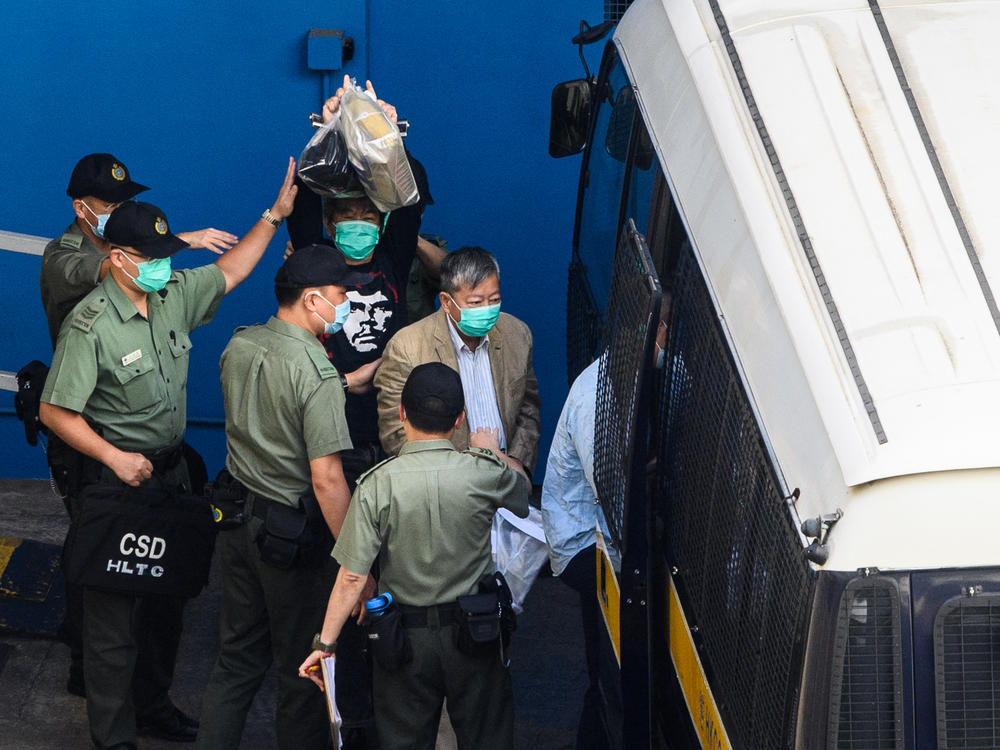Section Branding
Header Content
Hong Kong Pro-Democracy Leaders Get Prison Sentences For A 2019 Protest
Primary Content
BEIJING – Ten veteran Hong Kong pro-democracy activists and politicians have been sentenced to up to three years' prison time for organizing a demonstration in October 2019.
The sentences are the latest in a series of roundups among Hong Kong's beleaguered political opposition for their part in the broader anti-government demonstrations against Beijing's rule that rocked the region throughout 2019.
Former lawmakers Albert Ho, Lee Cheuk-yan and Leung Kwok-hung were each given two consecutive 18-month sentences by Judge Amanda Woodcock for organizing and attending the protest, which fell on China's National Day on Oct. 1, 2019.
Six others — including media tycoon and textile billionaire Jimmy Lai — were given lesser sentences of 14 months for helping organize the protest.
Cyd Ho, Lai, Lee and Leung already are serving jail time for organizing another unauthorized protest in August 2019.
Woodcock then denied bail for another former lawmaker and activist, Claudia Mo, who is facing a separate charge of violating a national security law. Among the evidence the judge cited were interviews Mo continued to take with reporters at the BBC, The Wall Street Journal and The New York Times after she was charged with subversion alongside 46 other activists. All of them had tried to organize an informal primary poll in the run-up to legislative elections before they were postponed.
Thursday's sentencings are part of an extensive cleanup of political agitators, lawyers, politicians and businessmen who took part in regionwide protests demanding democratic reforms in 2019.
More than 10,000 protesters were arrested during those demonstrations, which stopped entirely last year amid the coronavirus pandemic. Hong Kong later adopted harsh legal measures to deter political dissent.
Among those measures is a national security law passed by Beijing that created broadly defined crimes of subversion of state power, secession, terrorism and collusion with foreign forces, and assigns punishments of up to life in prison. The law has spurred dozens of Hong Kong protesters to seek political asylum outside China.
Beijing also approved electoral changes that dramatically overhaul how Hong Kong's legislators and chief executive are chosen in a way that gives pro-Beijing parties a boost.
Copyright 2021 NPR. To see more, visit https://www.npr.org.

